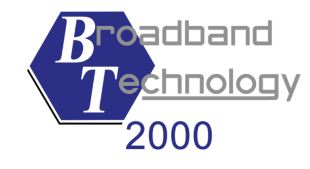In the realm of energy storage, lithium hybrid supercapacitors have emerged as a promising technology, combining the strengths of lithium-ion batteries and conventional supercapacitors. These innovative devices offer a compelling blend of high energy density, rapid charge/discharge capabilities, and extended cycle life, making them attractive for a wide range of applications.

Understanding the Lithium Hybrid Supercapacitor Advantage
Lithium hybrid supercapacitors bridge the gap between traditional batteries and supercapacitors, capitalizing on the unique attributes of each. Batteries excel in storing large amounts of energy, while supercapacitors shine in delivering high power bursts and enduring numerous charge/discharge cycles. By synergistically combining these qualities, lithium hybrid supercapacitors offer a compelling solution for energy storage needs.
Key benefits of lithium hybrid supercapacitors include:
- High Energy Density: Comparable to lithium-ion batteries, allowing for compact and lightweight energy storage solutions.
- Rapid Charge/Discharge: Capable of rapid charging and discharging, akin to supercapacitors, making them suitable for applications requiring quick energy delivery and recovery.
- Extended Cycle Life: Exhibiting exceptional cycle life, surpassing conventional batteries, enabling prolonged usage and reduced environmental impact.
Diverse Applications for Lithium Hybrid Supercapacitors
The versatility of lithium hybrid supercapacitors has opened up a plethora of potential applications across various industries. Some notable examples include:
- Electric Vehicles: As energy storage systems in hybrid and electric vehicles, providing high power bursts for acceleration and regenerative braking.
- Uninterruptible Power Supplies (UPS): In UPS systems, ensuring a seamless transition to backup power during grid outages, safeguarding critical equipment and data.
- Renewable Energy Storage: For storing intermittent energy generated from renewable sources like solar and wind power, ensuring reliable and stable power supply.
- Peak Shaving: In power grids, alleviating peak demand by providing additional power during peak periods, reducing strain on the grid infrastructure.
- IoT Devices: Powering energy-intensive IoT devices that require both high energy density and rapid charge/discharge capabilities.
Environmental Advantages of Lithium Hybrid Supercapacitors
Beyond their performance benefits, lithium hybrid supercapacitors offer distinct environmental advantages compared to conventional batteries:
- Sustainable Materials: Supercapacitors are typically constructed using more sustainable materials than batteries, minimizing reliance on rare earth metals.
- Enhanced Recyclability: Lithium hybrid supercapacitors are generally easier to recycle due to the absence of hazardous materials, contributing to a more circular economy.
- Safe Disposal: Their non-flammable and non-explosive nature facilitates safe disposal, reducing environmental risks associated with hazardous materials.
Conclusion: Embracing a Sustainable Energy Storage Future
Lithium hybrid supercapacitors represent a significant step forward in energy storage technology, offering a compelling blend of performance and environmental benefits. Their ability to deliver high energy density, rapid charge/discharge, and extended cycle life makes them well-suited for a wide range of applications, from electric vehicles to renewable energy storage. As the demand for sustainable and efficient energy storage solutions grows, lithium hybrid supercapacitors are poised to play a pivotal role in shaping the future of energy storage.

